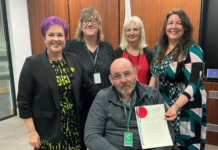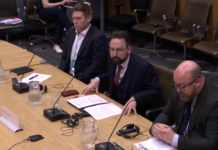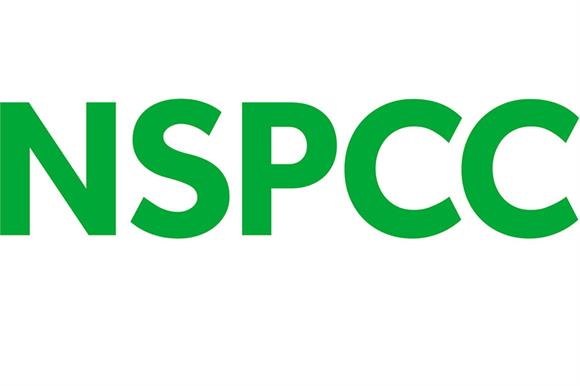NSPCC reveals rise in online bullying as it marks anti-bullying week
- Worrying news comes as the charity marks Anti-Bullying Week (14-18 November) and publishes latest bullying report
- Online bullying rises by 88% in five years
The number of children and young people across the UK tormented at the hands of online trolls has increased by 88% in five years, as the NSPCC publishes its latest report – ‘What children are telling us about bullying’.
The worrying figures, released at the start of Anti-Bullying Week, show the charity’s helpline service, Childline, counselled 4,541 children about online bullying in 2015/16 compared to 2,410 in 2011/12.
In a quarter of sessions children and young people were also counselled for a mental health and wellbeing issue, including low self-esteem, self-harm, suicidal thoughts and depression.
Childline figures for Wales are only available for 2015-16 but show that 493 counselling sessions took place with children contacting the service from Wales about all forms of bullying, which included online bullying.
Children as young as seven told Childline counsellors they were being tormented and abused by malicious and hurtful messages from which they felt there was no escape.
The comments posted on their social media profiles, blogs and online pictures ranged from bullying and abusive words about how a young person looked to death threats and in the most extreme cases directly telling them to go and kill themselves.
Many children and young people talked about a gaming or social networking site as the platform for their abuse and humiliation. The 24/7 nature of social media and the feeling that they are unable to escape from online trolls only exacerbates the issue.
One girl reported to Childline:
“Every day I wake up scared to go to school, scared about the comments people will make and scared about walking home. Then I get in and log onto my social networking site and there are horrible messages everywhere. It’s like there is no escaping the bullies. I’m struggling to cope with how upset I feel so sometimes I cut myself just to have a release but it’s not enough. I can’t go on like this.”
And another young person who contacted Childline said:
“It might sound like not much of a problem but there’s a group of people I play with online and they told me to kill myself. I won’t kill myself but it upsets me. My parents don’t realise how upset it’s making me and they tell me to stand up for myself or just not play anymore but they don’t know how hard that is! I don’t know why they have suddenly started picking on me but it hurts so much.”
The NSPCC’s advice to children and young people on dealing with bullying includes:
- Tell an adult you can trust
- Keep a diary of what the bullies do including dates and descriptions
- Write a letter to your Headteacher
- Don’t react, show the bullies you don’t care and they will often lose interest
The charity is also working with the Royal Foundation Cyber-bullying Taskforce to develop new tools and technology for children and young people and has also created a dedicated area about online bullying on the Childline website (www.childline.org.uk); where young people are enabled to share their experiences and offer support to their peers through message boards. Last year alone there were more than 11,000 posts about online bullying.
Des Mannion, Head of NSPCC Cymru / Wales, said: “Online bullying is one of the biggest child protections challenges of this generation. It is a problem intensified by the ever-increasing presence of the internet.
“Years ago a child could escape their bullies when they left the playground and get some respite in the safety of their home. Now the 24/7 nature of the internet means that a child can be targeted around the clock.
“Bullying, regardless of whether it occurs online or in person can have a devastating impact – affecting a child’s self-worth, leaving them feeling isolated and potentially being a trigger for depression. In the worst case scenarios, bullying has driven children and young people to self-harm and even suicide.”
Dame Esther Rantzen, President of Childline said the report has to act as a wake-up call:
“Bullying can wreck young people’s lives, especially now that the bullies don’t stop at the school gates. Cyber-bullying can follow them home until it becomes a persecution they cannot escape. It is imperative that adults, parents and teachers, intervene to protect them, because we have learned over the years from Childline callers that bullying does not stop on its own, left alone it gets worse.
“Schools must take this problem seriously, and above all children must ask for help. Bullying has been among the top problems children have brought to us since we launched 30 years ago. So children need to be reminded that Childline is here for them day and night, offering confidential help and advice on effective ways to beat the bullies.”
Children and young people can contact Childline for free, confidential support and advice, 24 hours a day on 0800 1111 or at www.childline.org.uk
Parents can contact O2/NSPCC for free advice on 0808 8005002.
Help keep news FREE for our readers
Supporting your local community newspaper/online news outlet is crucial now more than ever. If you believe in independent journalism, then consider making a valuable contribution by making a one-time or monthly donation. We operate in rural areas where providing unbiased news can be challenging. Read More About Supporting The West Wales Chronicle

























